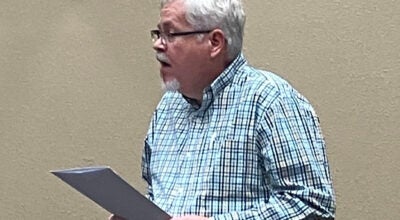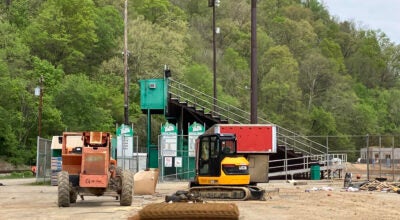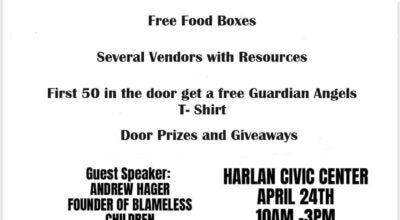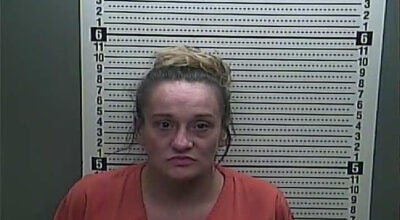Former Enterprise employees hold reunion
Published 12:00 pm Friday, June 9, 2023
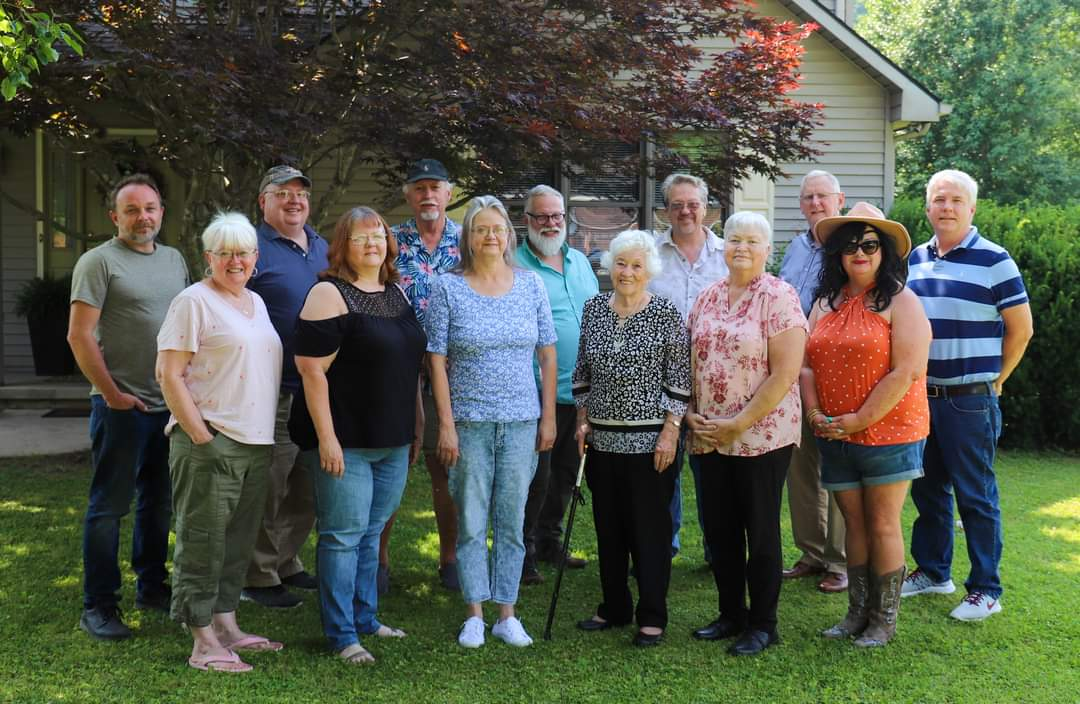
- A recent reunion of former Enterprise staff at the home of former Managing Editor John Henson. (Photo submitted)
|
Getting your Trinity Audio player ready...
|
The Harlan Enterprise, formerly the Harlan Daily Enterprise, has been a staple in Harlan County for more than 100 years, dating back to its founding in 1901. During that time, many people worked for the newspaper, and the publication covered too many important events to count. A collection of former employees got together on June 3 to talk about old times and catch up.
The reunion took place at the home of former Managing Editor John Henson. Those joining the festivities included former Enterprise mainstays Debbie Caldwell, Jeff Philips, Nola Sizemore, Brandon Goins, Mark Bell, Eva Bell, Jennifer McDaniels, Wylene Miniard, Chris Jones, Carla Jones and Andy Messer.
While his Enterprise career included other positions, Henson worked as managing editor from 1996 until 2011. He started as sports editor in 1985.
“I was always proud of the work we did,” Henson said. “I thought we had the best small daily newspaper in Kentucky. That wasn’t just me, that was when Jeff (Phillips) was editor and when Lisa Carnahan was editor, and Debbie (Caldwell) was editor after me.”
Henson remembered what led him to journalism.
“I figured out when I was about 12 that I wasn’t going to play first base for the Orioles, I couldn’t hit a curveball, and I just wasn’t very athletic,” Henson joked. “So, I started writing. I was pretty good at it in high school. Then I got into prelaw at Eastern (Eastern Kentucky University) and found out I wasn’t great at that either. I found out I was a much better journalist than I was at prelaw. So, I started in journalism at Eastern.”
Caldwell began her career at the Enterprise in 1996 as a stringer, mostly for sports photography, before moving into writing.
She was injured on the job immediately after Henson hired her.
“The first game I went out and covered for him that night, the whole line did an outside sweep and took out the whole sideline that I was on,” Caldwell said. “A guy hit me in the ribcage and sent me flying through the air. I landed on my right arm.”
Caldwell suffered a broken arm as a result.
“I was up in the press box, and I saw somebody flying through the air,” Henson remembered. “Then Debbie called me later and said she got hurt…nobody was more determined to learn and get better (at the job) than Debbie.”
Caldwell was back on the job with her arm in a cast the next game.
Eventually making the move to news, Caldwell covered all varieties of topics. Police news was an area of particular interest for her.
“I grew up in the passenger seat of my uncle’s police car,” Caldwell explained.
One of the most effective items published by the Harlan Daily Enterprise was a series of articles written by Caldwell focusing on the danger of OxyContin and its impact on the area.
Caldwell began her OxyContin series with the first installment published on Sept. 27, 2000.
“I started doing research on OxyContin,” Caldwell said. “I knew it inside out. When I first started researching it, it was in Maine. They were talking about how they were having trouble there and it was going to be a bad situation for the United States…so I wrote a couple articles on it and made people aware.”
While writing the series, Caldwell received death threats, her home was shot into, she was shot at, and dead animals were placed on her porch.
“It was scary, but I still wrote the series,” Caldwell said.
After the work was completed, the series won an award from the Kentucky Press Association.
“Excerpts from my articles in that OxyContin series were quoted in Newsweek magazine,” Caldwell said. “When I interviewed (then Circuit Court Judge) Ron Johnson, he said it was going to be a scourge on the whole region, Newsweek ran that quote…I was also told by some students in the criminal justice program at Eastern Kentucky University their teacher used my series in classes.”
Just as predicted, the OxyContin problem did hit Harlan and the surrounding region hard.
“We knew it was coming,” Caldwell said. “Maybe my articles helped put a dent in some of it, maybe they didn’t, but it did make people aware of the devastation it would and did cause.”
Caldwell says her favorite aspects of newspaper work were the ability to help people and sports photography. Her ability to capture breaking news led to a photo correspondent relationship with the Associated Press.
She gave a few examples of ways she had been able to assist people.
“If I could help people get guardrails put up on a road where their son or daughter had been killed in a crash, if I could write articles or columns to put pressure on Frankfort to make their roads safer, that meant the world to me,” Caldwell said. “If somebody needed help with a graveyard that was being disturbed, I would help them as much as I could. Those were things that I liked to do.”
There were also parts of the job that were not as rewarding.
“I hated to have to cover fatal crashes or murders, I hated it,” Caldwell said. “Especially fatal wrecks involving children…it was the things when people lost their lives that I hated.”
Caldwell retired from the Harlan Daily Enterprise as regional editor in Harlan, Middlesboro, and Tazewell, Tennessse, due to health issues in December 2017.
Nola Sizemore first hired on with the newspaper in 1973, originally working in the classified advertising arena.
“I stayed about five years, then I got on with the state and worked 32 years before retiring,” Sizemore said. “Then, I came back to the Harlan Daily and stayed probably eight or nine years as a writer. I absolutely loved it.”
Sizemore said her favorite part of the job was getting to meet and talk to all sorts of different people.
“I remember one night, Debbie (Caldwell) called me, she was out of town, and it was about 10 or 10:30 p.m., it was a cold night,” Sizemore said. “She told me they had a gas leak; somebody had shot a gas line in Pathfork.”
Sizemore was not sure exactly where the incident had happened.
“I drove all the way to the end of the road, and sure enough there were lights everywhere,” Sizemore said. “I remember sneaking up through there to get the story.”
Miniard had the longest tenure with the Enterprise of all the reunion attendees, with a career spanning 40 years.
“I started in 1976,” Miniard said.
Miniard started out as a receptionist before moving to sales, where she remained for the rest of her time at the newspaper.
Following many more stories and memories, the former workmates said their goodbyes and went their separate ways.


